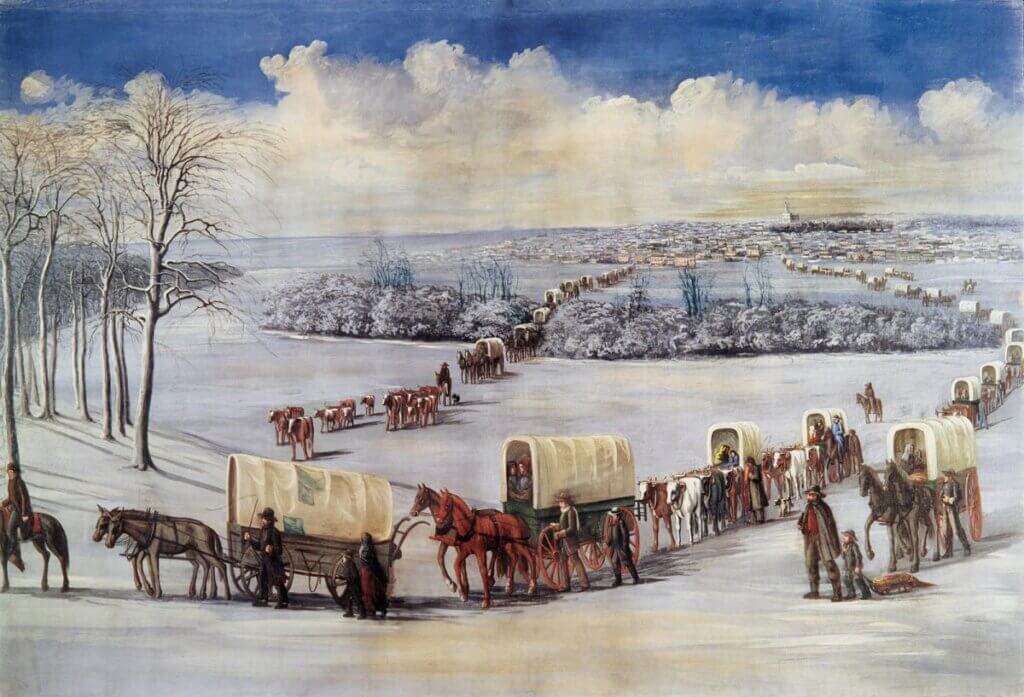We recognize the elite of the world by the wealth, power, and influence they wield, especially when oppressing the common people. But do we easily discern the elect of God or, at times, do we confuse the two? The term “elect” (Hebrew bechir) is the same as the word “chosen” (bechir) from the verb “to choose” (bachar) and is akin to the idea of “firstborn” (bechor). As there ever existed persons who “trusted in themselves that they were righteous, and despised others” (Luke 18:7–14), let us take a look at God’s definition of his elect.
Remembering that it is God who chooses his elect, not they themselves, we discover that Jesus defines his elect as those who “hear my voice and harden not their hearts,” who “believe in me and hearken unto my voice,” who “hear my voice, and shall see me, and shall not be asleep, and shall abide the day of my coming, for they shall be purified, even as I am pure” (Doctrine & Covenants 29:7; 33:6; 35:21), who are “chosen because of their faith” (3 Nephi 19:28), and whom he delivers out of their end-time afflictions (Mark 13:20).
By implication, therefore, those who aren’t chosen are persons who don’t hear his voice, who harden their hearts, who don’t see him, who are asleep, who aren’t purified, who lack faith, and who aren’t delivered from afflictions. We also observe this contrast in end-time prophecies such as: “There shall arise false Christs, and false prophets, and shall shew great signs and wonders; insomuch that, if it were possible, they shall deceive the very elect” (Matthew 24:24)—knowing that the elect are not deceived or they would not be his elect.
Further contrasted with the elect is a category of people who consist of “many who have been ordained among you, whom I have called but few of them are chosen,” who are “not chosen” because they “have sinned a very grievous sin, in that they are walking in darkness at noonday,” who are “not chosen” because “their hearts are set so much upon the things of this world, and aspire to the honors of men,” and who “err in many instances because of priestcrafts, all having corrupt minds” (Doctrine & Covenants 33:4; 95:5–6; 121:35).
Says Paul of those whom God chooses to overturn the works of humanity’s elites: “God hath chosen the foolish things of the world to confound the wise; and God hath chosen the weak things of the world to confound the things which are mighty; And base things of the world, and things which are despised, hath God chosen, yea, and things which are not, to bring to nought things that are” (1 Corinthians 1:27–28). That the “wise” and “mighty” and “things that are” include those from among his own people appears from the following:
“First, the rich and the learned, the wise and the noble; And after that cometh the day of my power; then shall the poor, the lame, and the blind, and the deaf, come in unto the marriage of the Lamb, and partake of the supper of the Lord, prepared for the great day to come” (Doctrine & Covenants 58:10–11). At that end-time turning point, political, academic, and ecclesiastical elites who “fared sumptuously” (Luke 16:19), who were “regarded as noble” (Isaiah 32:5), who “have their reward” in this world (Matthew 6:2) are cast off.
Multiplying today are many who, “after they had tasted of the fruit [of the Tree of Life], were ashamed, because of those that were scoffing at them; and they fell away into forbidden paths and were lost” (1 Nephi 8:28). Joining the ranks of elites, they “trust in themselves that they are righteous, and despise others,” repudiating the Lord’s church, his saints, and thus Christ himself as they tout their narratives devoid of light and divine revelation. Are these elites not the false Christs and prophets of our day who are deceiving many?













It is fundamentally difficult to live in Babylon and not be of Babylon.